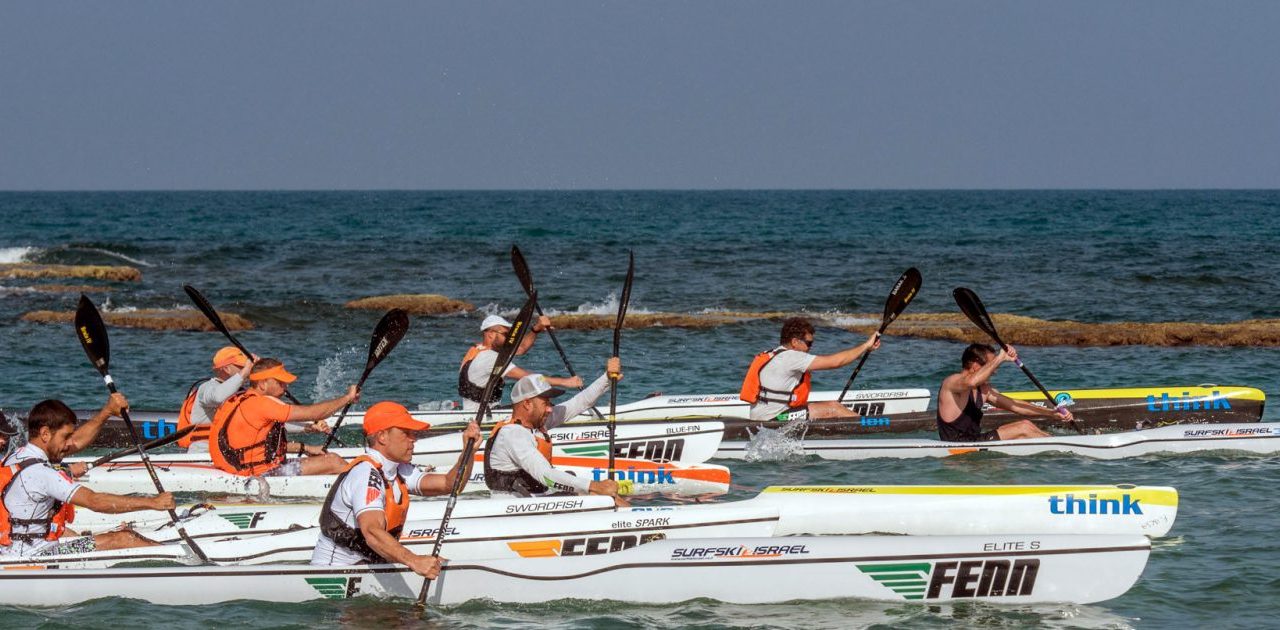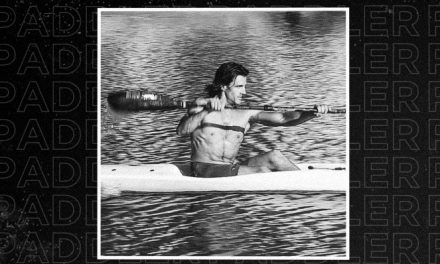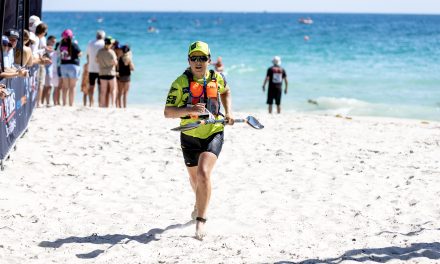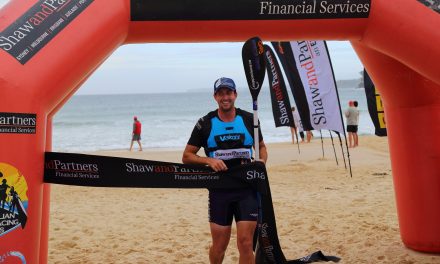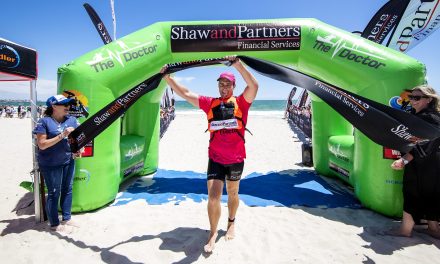SURFSKI SPOTLIGHT: ISRAEL
It could’ve all turned out so differently for Israel’s surfski scene.
Eyal Abro had been importing fibreglass kayaks into Israel for around a year when he was faced with a decision.
His relatively newfound passion for paddling was still burning brightly, but it wasn’t translating into sales.
The outlook was dire.
As he recalls, he was “trying to introduce something that people just didn’t know.”
But stored at the back of one of those early containers was a possible solution…
As unlikely as it seemed.
“I was sitting with my brother and I said I’m going to try and push the surfskis, and he said, ‘Don’t do it. It’s a waste of time.’”
“I’m not the kind of person to tell that I won’t succeed,” he chuckles.
“That’s the exact kind of fuel that I need.”
Abro grew up in South Africa, but that isn’t where his paddling journey began.
As he explained to The Paddler in a previous article, which you can read here, it wasn’t until after his time in the Israeli Special Unit that he picked up a paddle.
And was instantly hooked.
“I just loved it.”
“I felt connected to it, and when I began importing boats, I loved the feeling of introducing something that was new – even though I was doing it on zero budget.”
“And that’s not something I would do again.” He laughs.
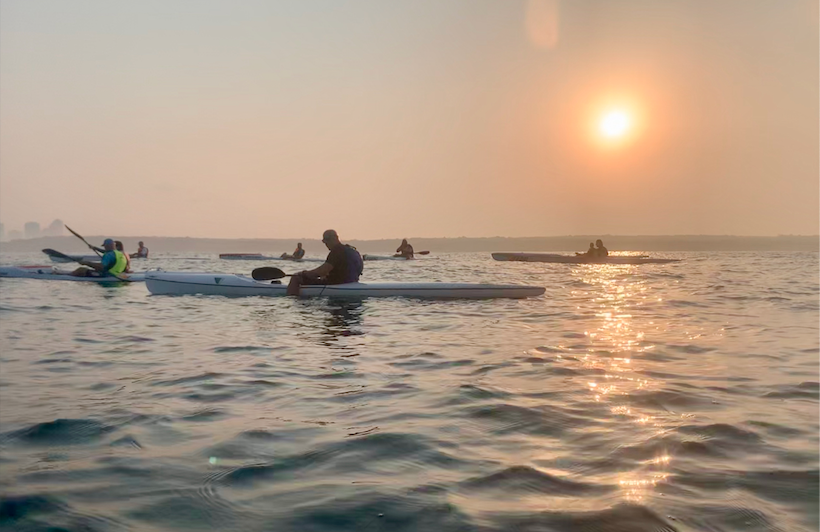
Abro wasn’t the first to bring surfskis into Israel.
In 2000, Michael Kolganov became a national hero when he claimed the nation’s fourth-ever Olympic Games medal, finishing third in the K1 500 in Sydney.
And it wasn’t just the bronze medal that he brought home with him.
Two surf lifesaving spec skis were also packed into the shipping container with his kayaks.
Speaking to Kolganov, the circumstances that lead to the boats being brought home, and what happened to them upon arrival, are unclear.
It’ believed that one of the boats was stolen, while the other simply disappeared.
Nonetheless, it was the beginning of Israel’s surfski story.
“A few years later, a couple of guys from another club brought some FENNs in, but it didn’t go anywhere.” Abro reflects.
“I made contact with them and FENN, and they all said we can go ahead and bring more boats in.
“Honestly, if it wasn’t for Keith it wouldn’t have happened.
“I managed to get 10 guys to purchase skis, and FENN gave me another 10 on consignment.
“It was a combination of Keith giving that trust and support, and it slowly started building up from there.”
The level to where the community has grown to is nothing short of breathtaking.
Abro’s club Surfski Israel Mokmowitz has 150 dedicated, passionate members.
The clubhouse looks like a first-class showroom, with sparkling skis, predominantly FENN and Think, lining every available wall and rack.
It’s the only surfski-specific club of its kind in the country, but there are a spread of training groups right along the coast, emerging from the roots of touring kayak’s popularity.
Within Surfski Israel, there are seven training groups covering all abilities.
The best of them have progressed to an extremely high standard and are comfortable paddling in all conditions.
Now, with entry-level boats more commonplace, that path to competency will only continue to be made easier.
“When I started importing skis, there was no V8 or no Bluefin,” Abro says.
“It was a sport that was just directed to athletes from a certain background… but now manufacturers have started pushing into the bigger world. And I was part of that process.
“I look at surfski and think – how is this sport not bigger than what it is?
“Over the past five years in Israel, more and more people are looking to the ocean for something to feel more connected to.
“For some people, they see SUPs and for other that’s surfski.
“When we came out of quarantine, I had a big explosion. I built a new group of 15 paddlers in two months.”
The downwind paradise has gained some notable admirers.
Sean Rice is a two-time ICF World Champion and has spent years travelling to all corners of the globe racing and coaching.
And he rates Israel’s conditions up there with the best of them.
“It’s the Mediterranean, so it’s just beautiful,” he says.
“Beautiful warm weather, warm water and the sea life is incredible with fish and dolphins everywhere.
“There’s calm mornings and windy evenings, blowing north to south, parallel along the coast, so you can downwind for as long as you want to go.
“And the surf can cook too – one of my trips, I couldn’t get out through the surf for four days because it was so big… it’s not for the faint-hearted.”
Rice has been travelling to Israel to coach for the past decade, and his connection to the community there runs deep.
Together with Abro, he’s helping to spread the SEASU United program, supporting veterans.
“Communities are very important in Israel and a community has sprung out of surfski which is probably the most unique thing,” Rice says.
“I don’t think there is a community like it, that has had surfski for such a short period of time… 15 years maximum.
“They’ve done a lot with their time and they’re quite independent to the world, following their own groove.”
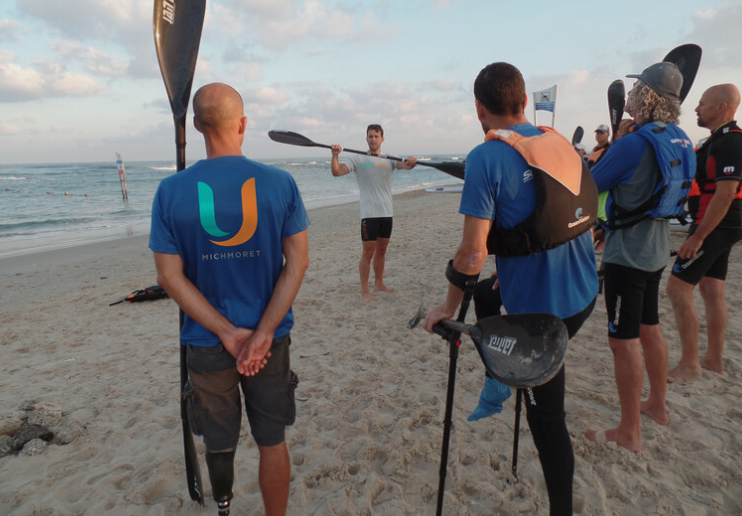
Abro attributes part of the surfski boom to a shift in Israeli culture.
“I think there’s a growing awareness about health and exercise,” he explains.
“More people are now out there swimming, and then they go swimming in the sea.
“And when they swim in the sea, they see surfskis and SUP.”
The perception of Israel as a paddling nation is beginning to shift too.
“Of course – people only think of military and war,” he laughs.
“But Israel is definitely a place to paddle… it’s a surfski community.

